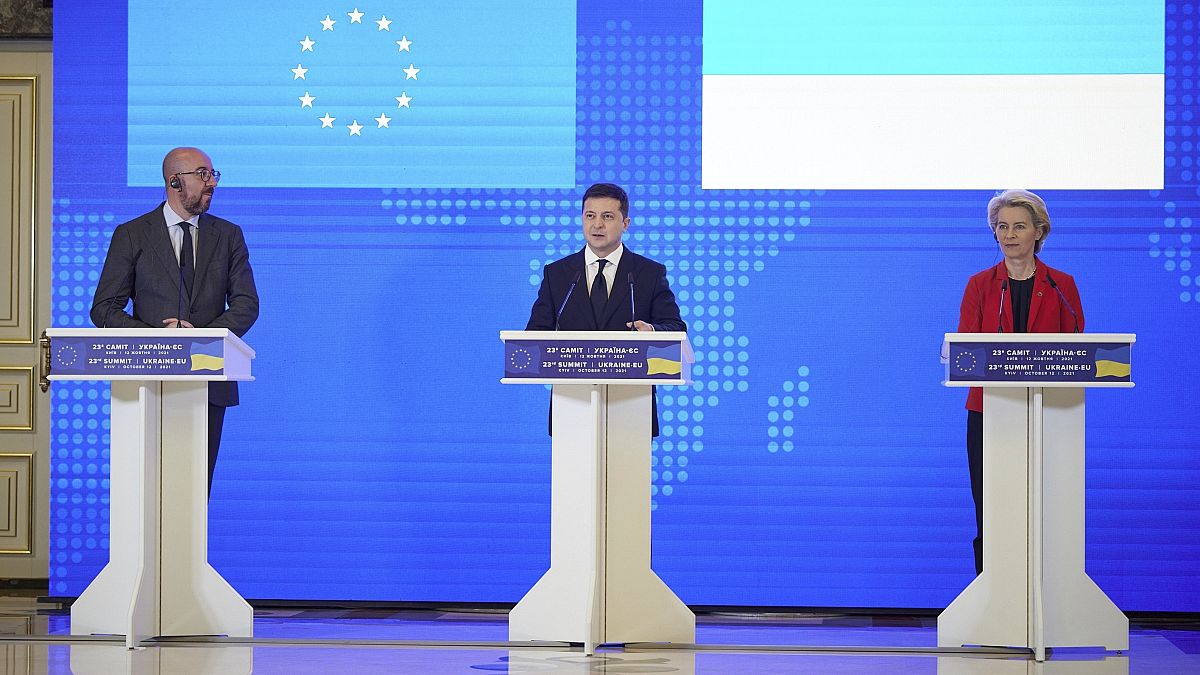The annual summit between Brussels and Kyiv was held in the Ukrainian capital on Tuesday.
Energy security was at the forefront of concerns at the EU-Ukraine summit on Tuesday, as surging gas prices and supply problems persist throughout the continent.
Large parts of the Northern Hemisphere are currently experiencing soaring energy bills, which is rapidly becoming a difficult issue for Brussels.
Kyiv's main concern, however, is about the consequences of the Nord Stream 2 gas pipeline between Russia and Germany that will bypass Ukraine.
Ukraine feels sidelined by Berlin's decision to go ahead with the project, arguing that it was not taken into consideration when making a decision.
Volodymyr Zelenskyy, the Ukrainian president, says the gas pipeline is a threat to his country's independence.
"Energy security is a prerequisite for the independence and national sovereignty of Ukraine because Nord Stream is opening new challenges for Ukraine in addition to the already existing ones," Zelenskyy said in Kyiv on Tuesday.
Brussels is promising to work on mid to long-term strategic solutions to reassure Kyiv though, including the use of reverse gas flows from the EU to Ukraine in case of shortages.
But this won't compensate for its loss of more than €1 billion per year it receives as a gas transit country.
"I understand your concerns and Ukraine's concerns about gas supplies in view of much lower gas deliveries from Gazprom. This is an issue not only for this winter but also for the winters to come," European Commission President Ursula von der Leyen told reporters.
"And therefore the Commission, together with Ukrainian experts, is exploring right now different scenarios to secure sufficient supply for Ukraine."
Despite the spotlight on energy security, Brussels tried to maintain a focus on the implementation of judicial reforms and anti-corruption measures in Ukraine.
It says it's pleased with the progress made, but more must be done to make sure that the relevant institutions and positions are fully operational and independent.
Gustav Gressel from the European Council on Foreign Relations says this isn't happening right now though.
"The problem is that we have two very well functioning institutions in Ukraine that are under siege by oligarchs, but also by forces within the president's own party, which is the National Anti-corruption Bureau and the special prosecutor service against corruption," Gressel explained. "So there is a big fight about the political independence of these two institutions which are crucial."
At the summit, the EU also reaffirmed its complete support for the territorial integrity of Ukraine in relation to the illegal annexation of Crimea, after approving sanctions against eight additional Russian individuals last week for actively supporting actions related to this.
Watch the full interview with Ukraine Editor at the Atlantic Council Peter Dickinson in the player above.
